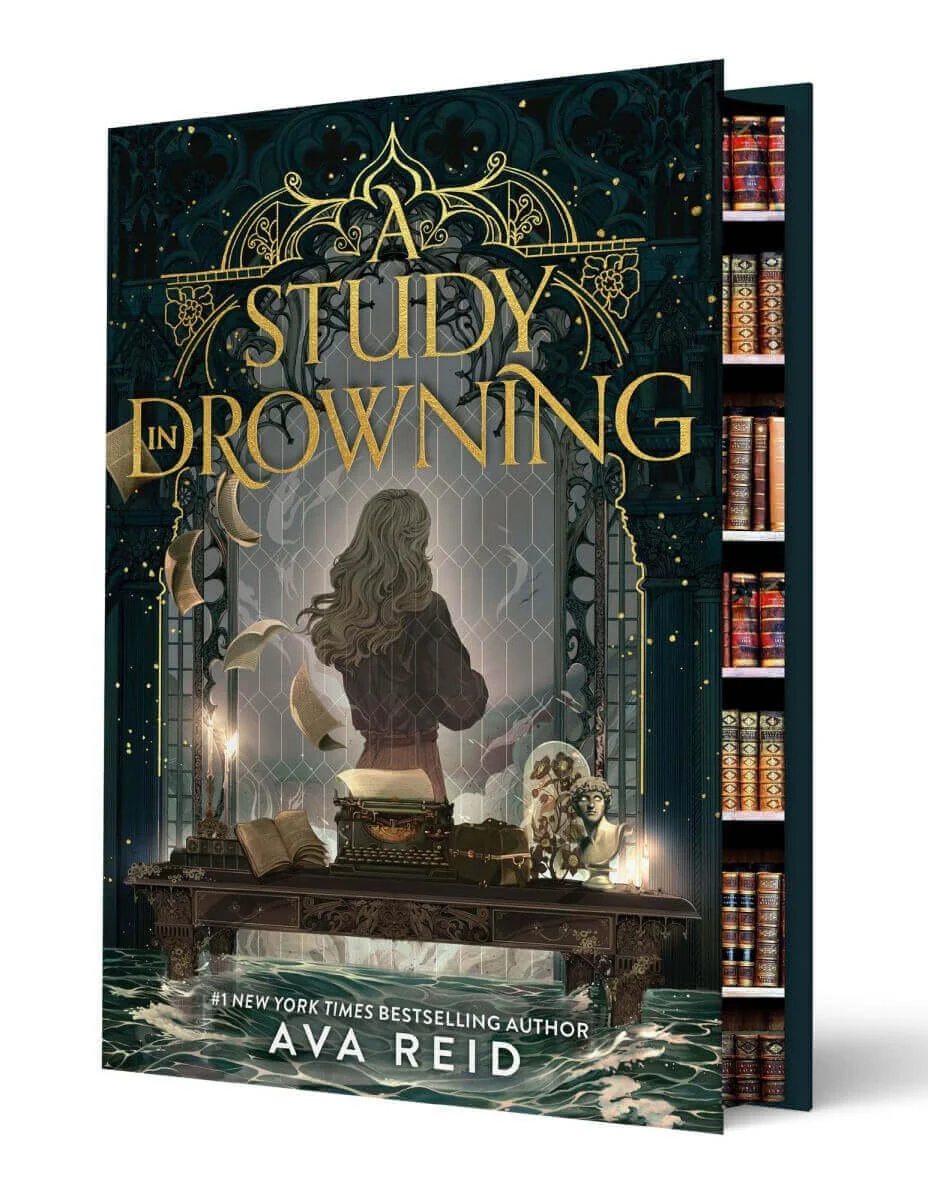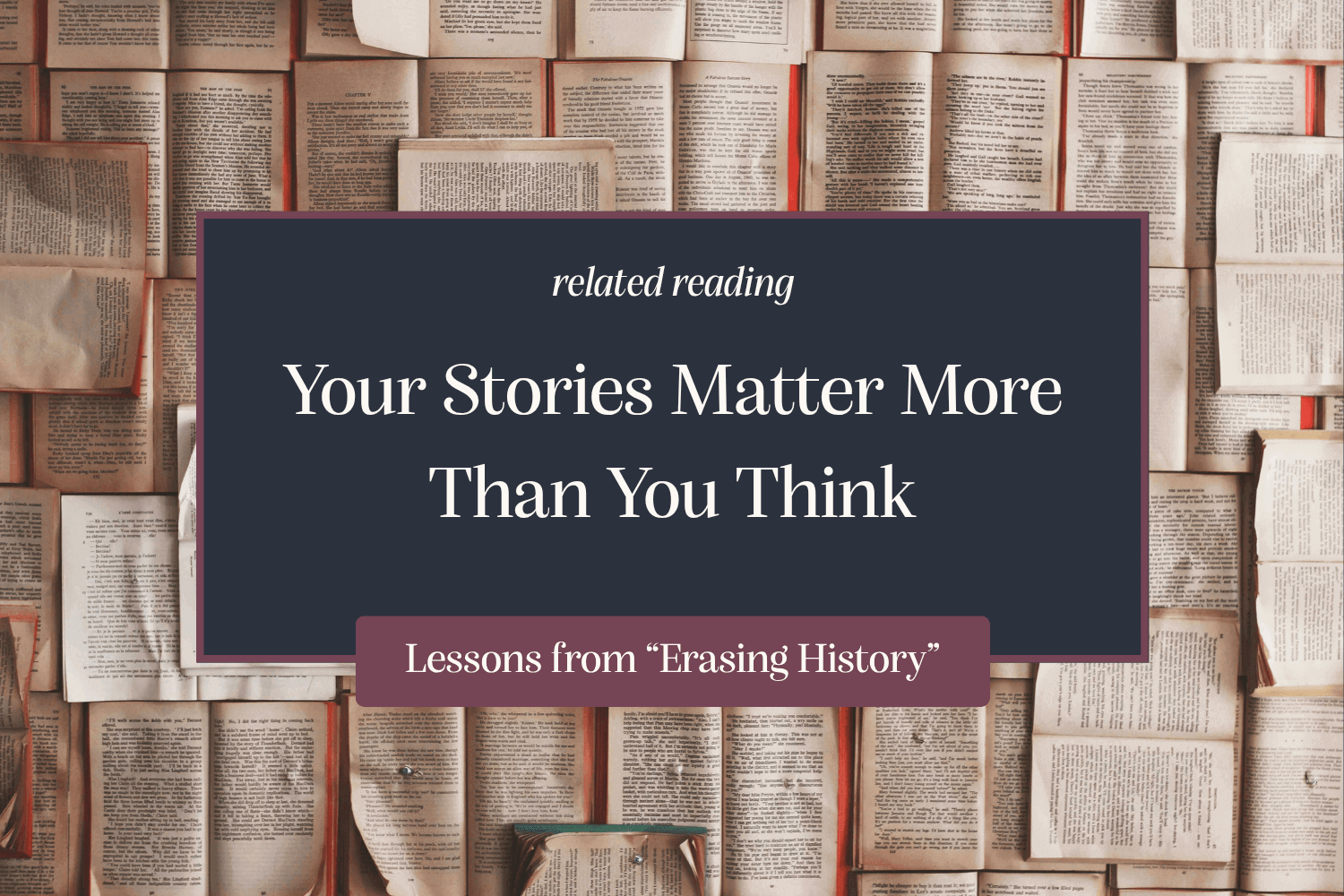The Power of the Name on the Cover
The Power of the Name on the Cover
Inspired by Ava Reid's "A Study in Drowning"
I just finished Ava Reid's “A Study in Drowning,” and I highly recommend this book. It’s dark and moody, suspenseful and poignant. But more than that, it mirrors a profound shift we’re seeing in today’s society.
Reid's novel resonates profoundly with what's happening in our world today.
Without spoiling the plot, I'll tell you this: a woman's story—her words, her brilliance, her very essence—are stolen by her husband and father. Her husband takes credit for her work, her father takes the profits, and together these two men erase her voice from literary history while basking in the acclaim that should have been hers.
As I read this, I felt a familiar…well, fury ignite in my chest. Because here's the thing: we're living in a time where history is attempting to repeat itself. Women, people of color, the LGBTQ+ community, and other marginalized voices are seeing their contributions erased or silenced. It's a pattern we've seen time and time again.
But here's what's different now: for the first time in human history, authors don't need permission to tell their stories.
The Internet Provides an Unprecedented Way to Fight Back
Today's authors can build their own stages, command their own audiences, and ensure their names are never silenced.
They don't need to wait for gatekeepers to deem their voices worthy. They don't have to beg publishers to print their work.
But only if they seize the unique opportunities provided by the internet era.
Let me show you exactly what I mean.
What Reid's World Shows Us About Our Own
Reid's fictional world mirrors our real one in ways that are both heartbreaking and hopeful.
Her story shows us what happens when voices are silenced, when attribution is stolen, when a few powerful people control the stories that shape our culture.
In “A Study in Drowning,” Reid creates a world where women are excluded from the most prestigious literary institution. The literary college has banned women from its halls, deciding that their perspectives and experiences don't matter.
This exclusion isn't accidental—it's deliberate, systematic, and devastating. When women are kept from the spaces where literature is discussed and elevated, their voices don't just get quieter—they get erased entirely.
Reading this, I couldn't help but think about every author I've worked with who's struggled to find their voice online, who's hesitated to take up digital space, who's worried their story isn't "important enough" to warrant a professional platform.
Every time an author doesn't claim their digital space, every time they wait for someone else to champion their work, every time they let others control their narrative, a little bit of Reid's fictional nightmare becomes real.
Here's what I've noticed: women, more than men, tend to wait for permission. We wait until our work is perfect, until we feel "good enough."
Often, we wait until it's too late.
The Historical Pattern of Silencing Voices
Reid's fictional world reflects centuries of real-world exclusion. Think about the great "masters" of literature you learned about in school. How many were women? How many were people of color? How many came from working-class backgrounds?
The canon we inherited wasn't shaped by the best stories—it was shaped by who had access to the platforms, publishers, and institutions that decided what counted as "literature."
Jane Austen had to publish anonymously. The Brontë sisters used male pseudonyms. George Eliot, George Sand—the list of women who had to disguise their gender to get their words into the world is long.
And these are just the women whose work survived despite the obstacles. How many voices were lost entirely? How many stories were never told because the storytellers couldn't reach an audience?
Here's what those historical gatekeepers understood: stories shape culture.
They don't just reflect it—they create it. When certain voices are excluded from the conversation, we all lose something essential.
This is why fighting for diverse voices in literature isn't just about fairness—it's about our cultural survival.
But here's the remarkable thing: we're living at the first moment in history where these gatekeepers are losing their power.
The Digital Revolution: Your Unprecedented Opportunity
Here's where Reid's fictional world and our real world diverge.
For centuries, the pattern was predictable: gatekeepers controlled access, voices were silenced, stories were lost. But today, something fundamental has shifted.
Today, authors don't need permission to tell their stories.
Not anymore.
Example: Lauren Roberts' Success Story
Let me tell you about Lauren Roberts, whose story has become legendary in author circles.
She leveraged a massive social media following to build a fanbase for her self-published book Powerless. By the time traditional publishers took notice, she already had a devoted readership eagerly waiting for her work.
She didn't wait for permission—she created her own platform, built her own audience, and proved the market for her story existed. Finally, she leveraged the following she'd created to secure a contract with Simon & Schuster.
Lauren's success isn't an anomaly—it's the future.
Andy Weir (The Martian) started with self-published online fiction that became a bestselling novel and Hollywood movie adaptation.
E.L. James (Fifty Shades of Grey) transformed her fan fiction into a cultural phenomenon.
The internet has fundamentally democratized storytelling.
Anyone with a story and the determination to tell it can build an audience. The tools exist, many of them free or affordable. The platforms are there. The audience is waiting.
But here's the catch: you have to seize this opportunity yourself.
Your Website: Your Literary Declaration of Independence
In our digital age, attention has become the most valuable currency.
Your website isn't just a digital business card—it's your command center for building your literary career.
Think of it this way: if attention is currency, your website is your bank. It's where you collect, store, and strategically deploy the readership you've earned.
Social media platforms are fantastic for discovery, but they're rented space. Algorithms change, platforms disappear, accounts get suspended. Your website is digital real estate you own outright.
When you control your digital platform, you control your narrative.
You decide how your work is presented, what stories get told about your journey, and how readers discover your books. No one can take that away from you.
Your website is your answer to the exclusion Reid writes about. It's your way of ensuring your voice can't be silenced, your attribution can't be stolen, and your story can't be erased.
It's Never Too Late to Start Building Your Audience
I've seen this transformation happen with my clients. Authors who felt invisible in the crowded literary marketplace find their confidence and audience when they have a professional platform that truly represents their work.
In Reid's novel, all Angharad wanted was "just one girl, only one, to read my book and feel that she was understood, and I would be understood in return." But she never knew how her book affected people because she didn't control her work.
But when you put your work out there—whether through an email list, a professional website, or social media—you might be surprised by the response. People love stories, and they want to love your stories.
Don't wait for a publisher to decide your fate.
Start sharing your work and author journey now. Build your following and, with it, your power.
Why This Work Matters
Here's the truth: this isn't just about building websites or growing social media followings. This is about something much more fundamental.
Stories are how we become better humans.
When we read about experiences different from our own, when we see the world through someone else's eyes—that's when we grow. That's when we develop empathy and understanding.
The exclusion Reid writes about doesn't just harm the silenced voices—it impoverishes all of us.
When women's stories are stolen or ignored, we lose half of human experience. When marginalized voices are excluded, we lose the perspectives that could help us address society's challenges.
This is why I'm passionate about helping authors build digital platforms. Every author I work with is fighting back against historical exclusion. Every website I build is a small act of rebellion against gatekeepers who decide which stories matter.
Practical Steps: Claiming Your Digital Stage
So how do you claim your digital stage? Here are the essential elements every author needs:
Your Digital Home Base
Your website should be professional, reflect your brand and genre, and make it easy for readers to discover your work. This isn't just about looking good—it's about creating an experience that converts visitors into readers and readers into fans.
Content That Connects
Share your writing process, discuss themes in your work, offer insights into your craft. Give readers reasons to return and stay engaged with your journey.
Email List Building
Social media algorithms are unpredictable, but email goes directly to readers' inboxes. Offer something valuable—a free short story, behind-the-scenes content, or exclusive updates—in exchange for email addresses.
Strategic Integration
Your website should connect all your other platforms. Drive traffic from social media to your website and your email list, and make sure everything works together to build your overall presence.
Long-term Vision
Build a digital platform that can grow with your career. Don't just focus on your current book—create a brand that will be flexible enough to serve you as you evolve as an author.
The Stories That Need to Be Told
We can't change the past, but we can shape the future.
Every author who builds a professional digital platform, every voice that claims space online, every story that finds its audience despite traditional barriers—these are victories against the exclusion Reid writes about.
Your story matters. Your voice is unique. Your perspective is valuable.
And in our digital age, you have the power to make sure the world hears what you have to say.
The question isn't whether your story deserves a platform—it's whether you're ready to build a stage for yourself.
Don't wait for permission. Don't wait for gatekeepers. Don't wait for someone else to champion your work.
Build your stage. Tell your story. Change the world.
Because stories change us, connect us, and make us more human. Your story deserves to be part of that transformation.
The digital revolution has made it possible. The question is: are you ready to be part of it?












